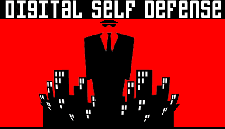|
 |
||||
|
Black Hat USA Training 2004 Course Length: 2 days Cost: US $1800 on or before July 1, 2004, or US $2000 after July 1, 2004. All course materials, lunch and two coffee breaks will be provided. |
|
Two Day Course
|
July 26-27
|
|
Intermediate Digital Forensics: Civil Litigation Matters |
|
|
eForensics LLC
|
|
|
What to bring: CD containing notes, certain toolsets, datasets and evidence files are provided
|
Introduction to Digital Forensics and Civil Litigation Matters: The material and current knowledge is intended to support and checkpoint each individual’s level of skills and practice as a professional digital forensics examiner. Little attention will be made to abstract theory or “hypothetical” abstractions not central to present-day digital forensics challenges. Note that the proximate intent of the pedagogy is a practical means to both develop and verify your professional level of forensics tradecraft. The entire course materials, toolsets and cases are new– the course is both intense in depth and fast-paced in materials. This particular intensive two-day course is only offered at Black Hat, Las Vegas 2004. Overarching Purpose:
Review of US Civil Laws and Procedure: Advanced Labs and Case materials: Examination: Course Structure: What You Will Learn: Who Should Attend: eForensics Portal:
Course Length: 2 days Cost: US $1800 before July 1, 2004 or US $2000 after July 1, 2004 |
|
Trainer:
|
Larry Leibrock Ph.D. is the founder and chief technology officer for eForensics®. His primary research and practitioner competencies focus on enterprise forensics dealing with a wide range of client devices, networks, and servers which interplay in electronic discovery investigations. He has conducted over 100 digital forensics examinations, testified in over 20 hearings/trials and taught basic to advanced digital forensics tutorials in 8 countries. These digital forensics investigations range from: administrative disputes, possession of contraband pornography, malicious network intrusions to capitol espionage cases. As a digital forensics expert, Larry has served in consulting and testifying capacities in civil defendant–plaintiff and criminal prosecution–defendant disputes. In addition, he has served as court appointed special master in forensics intellectual property disputes. Larry is also a member of the Department of Defense Software Engineering Institute and a participant in the Air Force Software Technology Conference. He has experience in enterprise systems, offensive/defensive systems security measures, systems audits, and IT deployment projects in global systems, governmental and corporate settings. He holds industry certifications in forensics, systems performance, computer security, security engineering, steganography/watermarking detection, IT project solutions deployments and IT cost/value assessments. He has formerly served as a senior lecturer, Associate Dean, and the Chief Technology Officer for the University of Texas Graduate School of Business and College of Business Administration. He has taught courses in Forensics, Digital Evidence, Computer Security and IT systems and the undergraduate, graduate and Law School level. Larry is a member of American College of Forensics Examiners, IEEE, ACM, Internet Society, and USENIX/SAGE. Mollie C. Nichols, J.D., L.L.M, is the Associate Director for Research and Professional Education for the Courtroom 21 Project at William & Mary School of Law. She was formerly the Director of Litigation Training for the Office of the Attorney General, State of Texas and has nearly two decades of experience in both civil and criminal litigation working for the federal and state government and in private practice. As an Assistant United States Attorney for the Department of Justice, Nichols was responsible for one of the early cases dealing with electronic evidence and alleged violations of the Electronic Communication Privacy Act of 1986, including the Federal Wiretap Act and the Stored Communications Act, a landmark case where computers which contained unopened email were seized by the Secret Service. She also ran the Civil and Appellate Divisions of the Department of Justice's Attorney General's Advocacy Institute, the trial training program for Assistant United States Attorneys nationwide. Nichols has gained national acclaim within the courtroom technology industry through her nationwide efforts training litigators, publishing articles, and speaking on the use of technology in the courtroom and electronic evidence issues |
|
(c) 1996-2007 Black Hat
|

